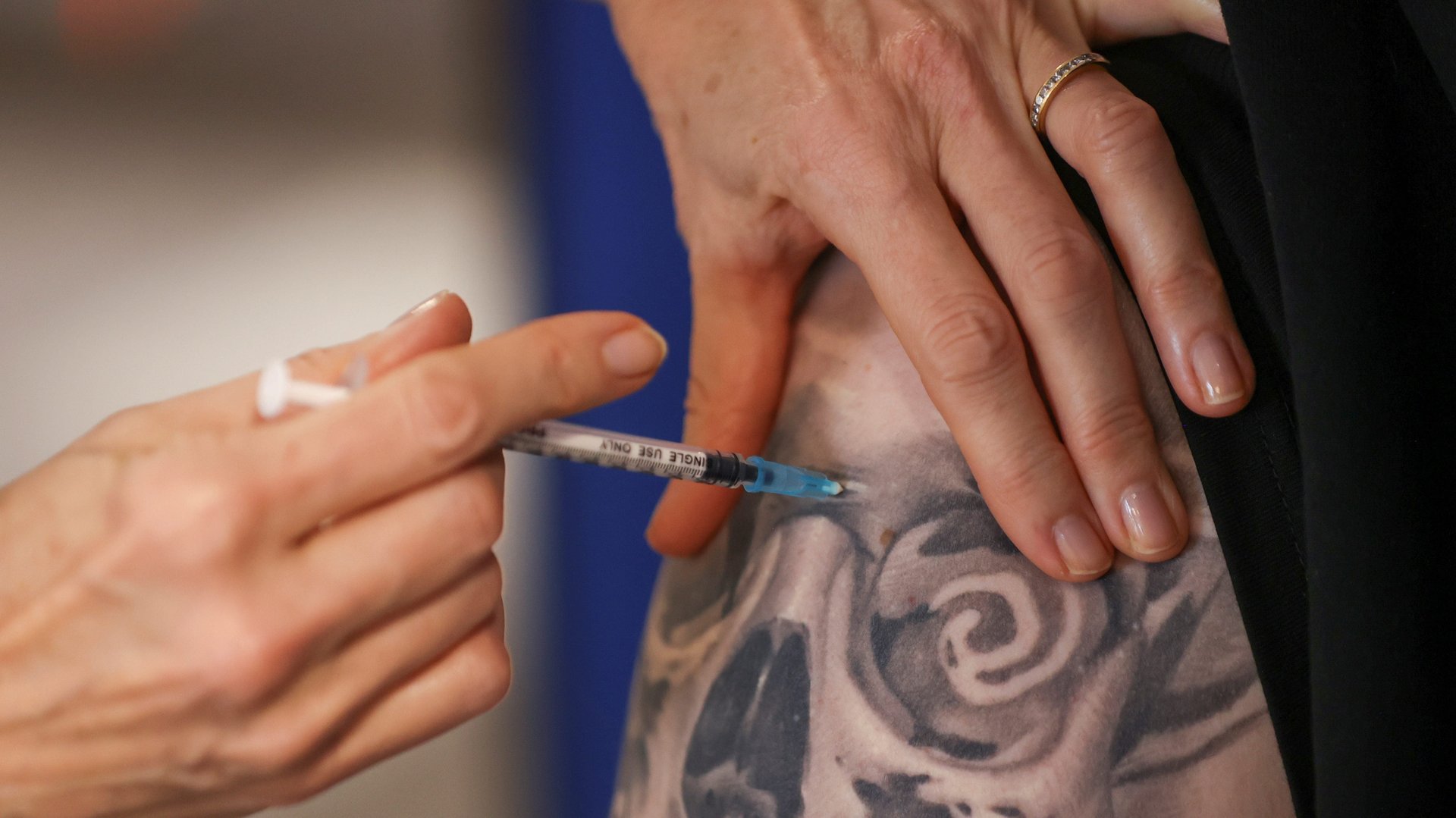Who has the power to mandate vaccines? Employers
All over the world, political leaders are steering clear of vaccine-mandate backlash—from anti-vaxxers, libertarians, or religious communities. After he won his election, president Joe Biden confirmed that vaccinations wouldn’t be mandatory in the US. In the UK, prime minister Boris Johnson has explicitly ruled out domestic “vaccine passports”—markers of proof needed for people to enter commercial establishments like pubs. Jens Spahn, the German health minister, gave his word: “no compulsory vaccination during this pandemic.”


All over the world, political leaders are steering clear of vaccine-mandate backlash—from anti-vaxxers, libertarians, or religious communities. After he won his election, president Joe Biden confirmed that vaccinations wouldn’t be mandatory in the US. In the UK, prime minister Boris Johnson has explicitly ruled out domestic “vaccine passports”—markers of proof needed for people to enter commercial establishments like pubs. Jens Spahn, the German health minister, gave his word: “no compulsory vaccination during this pandemic.”
But there is a proxy method to achieve some of the same ends: getting companies to require employees to be vaccinated.
In the UK, many companies want to redraw their employment contracts to compel existing staff as well as new recruits to be vaccinated, the Financial Times reported. The contracts are likely to grant medical or religious exceptions, but even so, multiplied across the full workforce, that will still result in a large proportion of adults getting their shots. These stipulations may face legal challenges, but the government implicitly gave them its blessing. “It’s up to businesses what they do,” Nadhim Zahawi, the UK’s vaccine minister, said.
Companies don’t share the state’s reluctance to be seen as coercive. They wield the power of paychecks over their staff, of course. But with regards to the coronavirus, their duty is owed not to individual liberties but to the creation of a safe, healthy workplace. When the world opens up once more, employees need to feel that they can go into the office without running into an infected colleague. Business owners need to be able to plan to work with a full-strength staff, without suffering sudden mass leave after employees make each other sick.
Some caveats apply. Scientists don’t yet know how much a vaccine reduces the transmission of Covid-19, or how long immunity remains in place after a regimen of shots. If companies begin to discriminate against employees who aren’t able to get vaccinated for genuine religious or medical reasons, they will—rightly—face prompt lawsuits. And HR departments will have to deal with vaccination and health records with great sensitivity, treading the line between the right to privacy and the right to a safe workplace. But subject to these caveats, the vaccination campaign offers the rare chance for companies to intervene in public health, which in ordinary times would remain the preserve of governments.